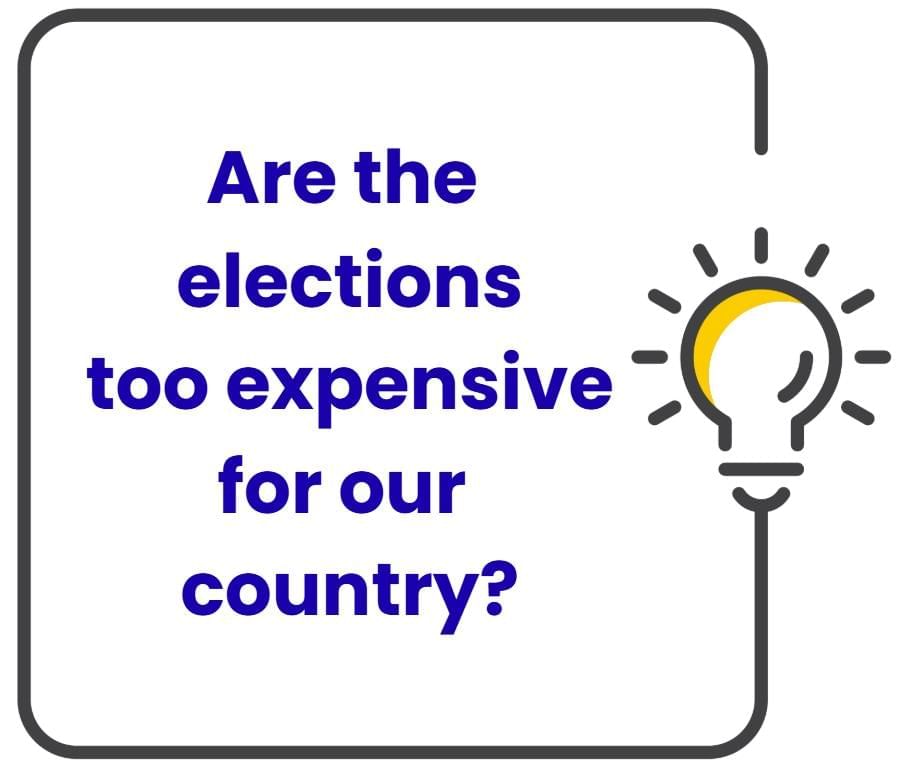Class 9 Civics Chapter 3 Notes - Electoral Politics
| Table of contents |

|
| Introduction |

|
| Why Elections? |

|
| What is Our System of Elections? |

|
| What Makes Elections in India Democratic? |

|
| Key Terms |

|
Introduction
Electoral Politics refers to the process through which representatives are elected by the people to govern on their behalf in a democracy. It encompasses all activities related to elections, including campaigning, voting, and the declaration of results.
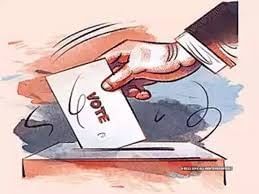
In a democratic system, citizens govern indirectly by choosing representatives through elections. This chapter explores the essential role of elections in democracy, explaining why they are necessary and how they work.
Why Elections?
Elections are essential in a democracy, allowing people to select their leaders and ensure they are held responsible. The 1987 Haryana Assembly election is a key example of how this process works within the larger context of Indian democracy.
Assembly Election in Haryana
- The Congress party had been in power since 1982.
- Chaudhary Devi Lal, the opposition leader, initiated the 'Nyaya Yudh' movement (Struggle for Justice), established a new party called Lok Dal, and collaborated with other opposition groups to challenge Congress.
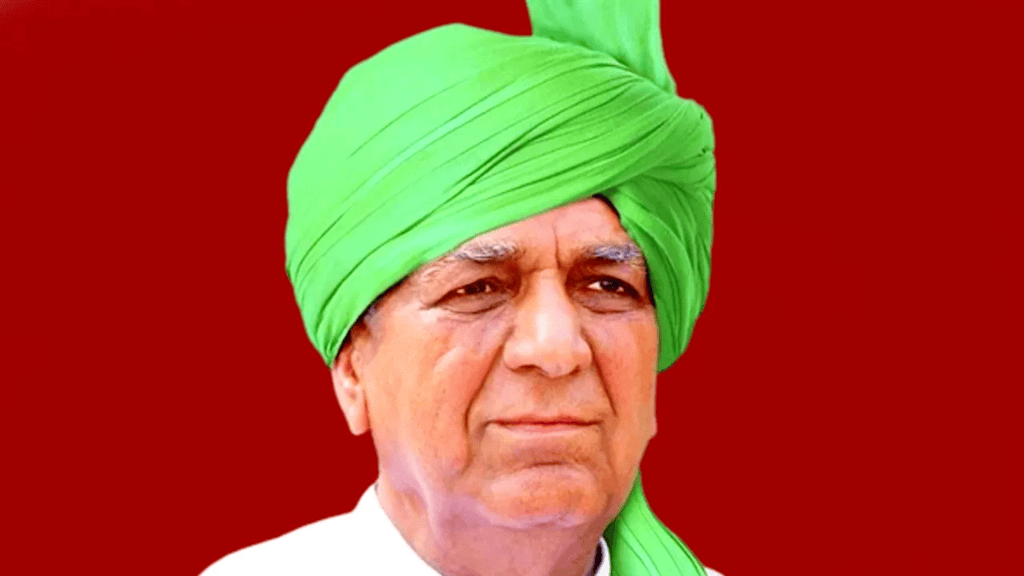 Chaudhary Devi Lal
Chaudhary Devi Lal
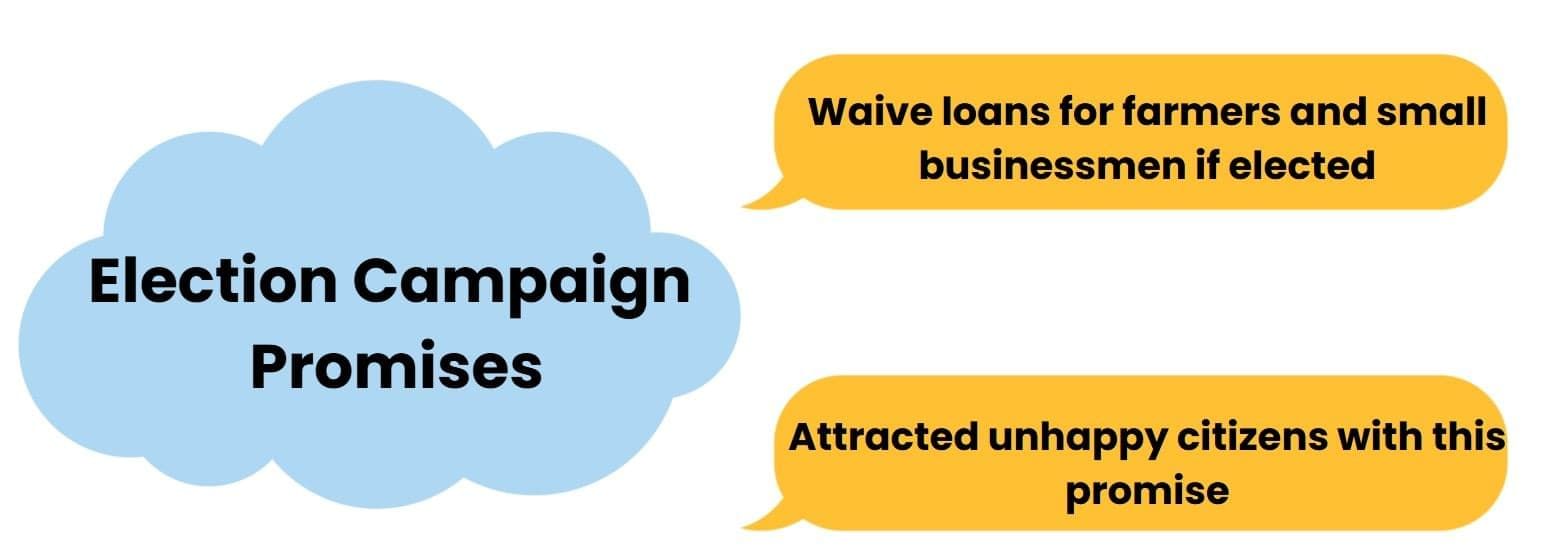
Election Results
- The public was unhappy with the current government and found Devi Lal's promise attractive.
- Lok Dal and its allies secured 76 out of 90 seats in the State Assembly.
- Lok Dal won 60 seats on its own, while Congress managed only 5.
- Devi Lal was elected as leader by the newly chosen MLAs.
- The Governor invited Devi Lal to take on the role of Chief Minister.
Devi Lal Government Actions
- Waived outstanding loans for small farmers, agricultural labourers, and small businessmen.
- Ruled the state for four years.
1991 Haryana State Assembly Election
- Lok Dal did not win popular support.
- Congress won the election and formed the government.
Why do we need elections?
Elections are a crucial part of any democratic system. They serve several key purposes: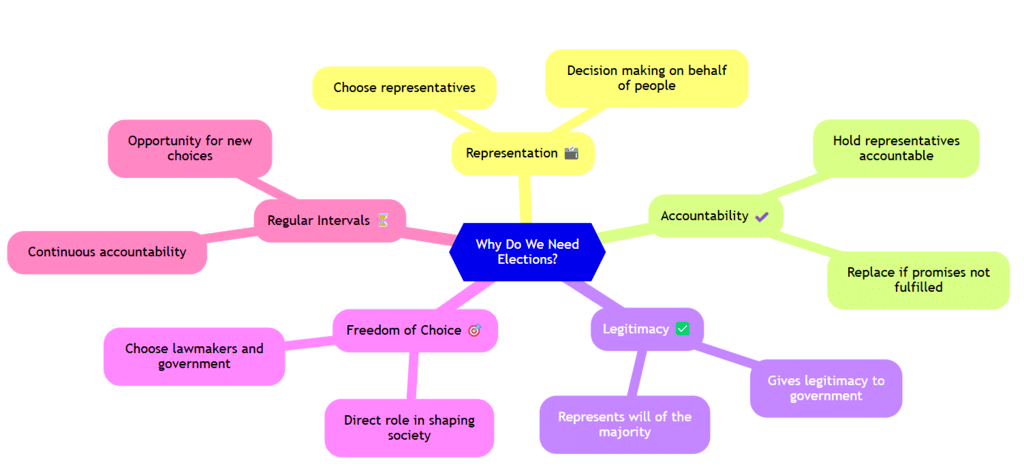
- Representation: In a large society, it is not practical for everyone to gather and make decisions directly. Elections allow people to choose representatives who will make decisions on their behalf.
- Accountability: Elections provide a way for people to hold their representatives accountable. If the representatives do not perform well or fulfill their promises, voters can replace them in the next election.
- Legitimacy: Elections give legitimacy to the government. When leaders are chosen by the people, it reinforces the idea that the government represents the will of the majority.
- Freedom of Choice: Elections allow citizens to choose who will create laws, form the government, and guide policies. This gives people a direct role in shaping their society.
- Regular Intervals: Elections occur at regular intervals, ensuring that representatives are continuously accountable and that citizens have the opportunity to make new choices.
Without elections, a system cannot truly be democratic because there would be no way to measure public opinion, change leadership, or ensure that government power reflects the people's will.
What Choices Do Voters Make?
- Voters choose who will make laws.
- Voters choose who will form the government.
- Voters choose the party whose ideas will guide the government.
What makes an election democratic?
Democratic Elections vs. Other Elections
- Democratic elections exist in all democratic countries, while some non-democratic countries also hold elections.
- It's essential to distinguish democratic elections from other elections for a better understanding.
Minimum Conditions for Democratic Elections:
- Equal voting rights: Everyone should have one vote, and each vote should have equal value.
- Availability of choices: Parties and candidates should be free to contest elections, providing real choices to voters.
- Regular intervals: Elections should be held every few years to maintain a democratic system.
- People's preference: The candidate preferred by the majority should be elected.
- Free and fair conduct: Elections should be conducted in a manner where people can choose according to their wishes.
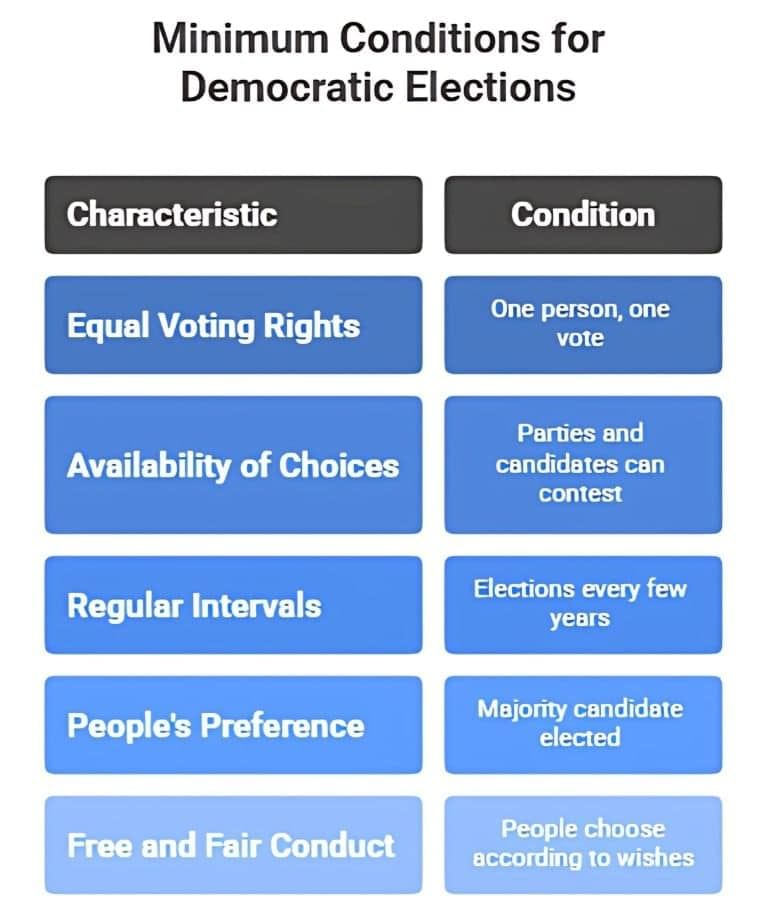
Applying Conditions to Our Country
- It's necessary to assess if these conditions are met in our country to determine if our elections are democratic.
- Many countries do not fulfill these simple yet essential conditions for democratic elections.
Is it good to have political competition?
- Elections are essentially about political rivalry.
- This rivalry occurs in different ways.
- The most apparent form is the competition amongst political parties.
- At the constituency level, it involves a contest between multiple candidates.
- Without competition, elections would lose their purpose.
Problems with Political Competition
- Political competition can lead to fights, blame games, and dirty tricks between parties.
- It sometimes causes disunity in local areas.
- Some people feel this competition stops leaders from making long-term, good policies.
- Good people who want to serve the country may stay away from politics due to this unhealthy environment.
Why Do We Still Have Political Competition?
- Our Constitution makers knew these problems, but still chose free competition in elections.
- This is because, in real life, leaders are not always motivated just to serve the people. Many also want power and positions.
- Even if leaders want to serve the people, they may not always know what the people truly need.
How do Elections Help?
- Elections allow people to reward or remove leaders based on their performance.
- If leaders do good work, they have a better chance of winning again.
- If they fail, people can vote them out in the next election.
- This system is like a market—just as a shopkeeper gives good service to keep customers, leaders must work for the people to stay in power.
What is Our System of Elections?
To determine if Indian elections are democratic, let's look at how they are carried out.
- Lok Sabha and Vidhan Sabha (Assembly) elections happen every five years, marking the end of the elected representatives' terms, leading to the dissolution of the Lok Sabha or Vidhan Sabha.
- Elections occur simultaneously across all constituencies, either on the same day or within a few days, known as a general election.
- Sometimes, a single constituency holds an election to fill a vacancy due to a member's death or resignation, called a by-election.
Electoral Constituencies
- India follows an area-based system of representation. For this purpose, the country is divided into different areas for purposes of elections. These are called electoral constituencies.
- Voters who live in a constituency elect a representative for their area.
- For the Lok Sabha elections, the country is divided into 543 constituencies.
- Each constituency elects a representative, known as a Member of Parliament or MP.
- Therefore, 543 MPs get elected to the Lok Sabha as people’s representatives.
- In a democratic election, every vote should hold equal value, so the Constitution mandates that each constituency should have a roughly equal population.
- Each state is also divided into a specific number of Assembly constituencies, where the elected representative is called the Member of Legislative Assembly or MLA.
- The same principle applies to Panchayat and Municipal elections. Every village or town is divided into various 'wards' that function like constituencies. Each ward elects one member of the village or urban local body.
- Sometimes, these constituencies are referred to as 'seats', as each constituency represents one seat in the assembly.
- For example, when we say 'Lok Dal won 60 seats' in Haryana, it means that Lok Dal candidates emerged victorious in 60 assembly constituencies in the state, resulting in 60 MLAs for Lok Dal in the state assembly.
Reserved Constituencies
A true democracy provides equal opportunity to all individuals and sections of society to take part in elections, get elected, and share in the governance of the economy.
Concerns of the Constitution Makers
- Weaker sections may not have a fair chance in open electoral competition
- Lack of resources, education, and contacts could hinder their chances of winning elections.
- Democracy would be less representative without the voice of these significant sections
Reserved Constituencies
- Special system for weaker sections (Scheduled Castes and Scheduled Tribes).
- SC reserved constituencies: only Scheduled Castes candidates can stand for election.
- ST reserved constituencies: only Scheduled Tribes candidates can stand for election.
- 84 Lok Sabha seats are reserved for the Scheduled Castes, 47 for the Scheduled Tribes (as on 26 January).
Reservation Extensions
- The reservation system was extended to the district and local level.
- Seats in rural (panchayat) and urban (municipalities and corporations) local bodies are reserved for Other Backward Classes (OBC) in many states.
- The proportion of seats reserved varies from state to state.
- One-third of seats are reserved in rural and urban local bodies for women candidates.
Voters' list
- After deciding the voting areas (constituencies), the next step is to make a list of who can vote.
- This list is called the Electoral Roll, also known as the Voters’ List.
- It is made before the election and shared with everyone.
Why is the Voters’ List Important?
- It ensures that everyone gets an equal chance to vote.
- According to the rule of universal adult franchise, every adult has one vote, and each vote has equal value.
- People may be rich or poor, educated or not, kind or unkind — but everyone should have the right to vote because everyone has their own opinions and needs.
Who Can Vote?
- In India, all citizens who are 18 years or older can vote.
- Your caste, religion, or gender does not matter.
- Only in rare cases, such as serious criminals or people with mental illness, can voting rights be denied.
Keeping the List Updated
- The government must make sure all eligible people are included in the voters’ list.
- Names are added when someone turns 18.
- Names are removed if a person dies or moves to a different area.
- The list is updated every five years to keep it correct.
Voter ID Card
- A new system called the Election Photo Identity Card (EPIC) has been introduced.
- The government is giving this card to people on the voters’ list.
- Voters are asked to carry this card when voting to stop others from voting in their place.
- However, this card is not mandatory. Other IDs, like a ration card or driving licence, can also be shown.
Nomination of candidates
- In a democracy, people should have a real choice of candidates to vote for.
- This is possible only when anyone can contest elections with very few restrictions.
Who Can Be a Candidate?
- Any person who is a voter can also become a candidate.
- The minimum age to vote is 18 years, but to contest elections, the person must be at least 25 years old.
- People with serious criminal backgrounds can be stopped from contesting, but only in rare cases.
Party Nomination
- Political parties select candidates to contest elections on their behalf.
- These candidates are given the party’s symbol and are said to have received a party ticket.
What is the Nomination Process?
Anyone who wants to contest must:
- Fill out a nomination form
- Pay a security deposit (a fixed amount of money)
New Declaration Rules
The Supreme Court has made it compulsory for all candidates to give full details about:
- Criminal cases (if any) against them
- Their assets and debts
- Their educational qualificationsThis information must be shared with the public so that voters can make an informed choice.
Educational qualifications for candidates
Q: Why is there no educational qualification for holding such an important position when some kind of educational qualification is needed for any other job in the country?
Ans:
- Some people ask why there is no educational qualification needed to become an MLA or MP, even though most jobs in the country require one.
But not all jobs need an education degree.
- For example, to be in the Indian cricket team, you don’t need a degree — you need to play well.
- In the same way, to be a good MLA or MP, a person needs to understand people’s problems and speak for them, not just hold a degree.Voters are like examiners. They judge the candidates during elections and decide who is suitable to represent them.
Even if education matters, it should be the voters’ choice to decide how important it is while voting.
Also, making education compulsory would go against democracy in India.
- If a rule said only graduates (B.A., B.Com, B.Sc) can contest elections, then most people (over 90%) would not be allowed to stand for elections.
- This would be unfair to the majority of citizens.
Election Campaign
- The main aim of an election is to give people the chance to choose their leaders, the government, and the policies they want.
- So, there must be free and open discussions about who is a better candidate, which party will run the government better, what are the best policies?
- An election campaign is the time when political parties and candidates talk to voters and promote their ideas.
- In India, official campaigns happen for two weeks — from the day the final list of candidates is announced to the day of voting (polling). During this time:
- Candidates meet voters
- Political leaders give speeches
- Parties gather support
- TV and newspapers show news, stories, and debates about elections. However, parties often start preparing for elections months in advance, not just during these two weeks.
What Do Parties Do in Campaigns?
- Parties focus on major issues and try to convince people to vote for them based on those issues.
- They use slogans and messages to catch the public’s attention and promote their promises.
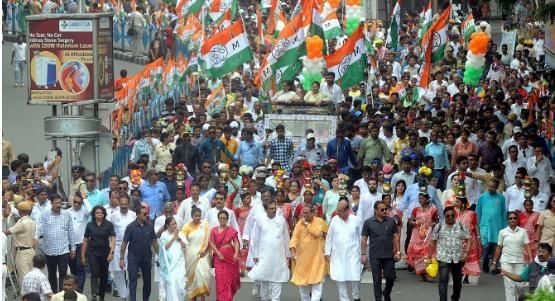 Election Campaign in India
Election Campaign in India
Successful Slogans in Various Elections -
- In the 1971 Lok Sabha elections, Indira Gandhi and the Congress Party gave the slogan "Garibi Hatao" (Remove Poverty). They promised to change government policies to reduce poverty in the country.
- In the 1977 Lok Sabha elections, the Janata Party, led by Jayaprakash Narayan, used the slogan "Save Democracy". They aimed to reverse the wrongdoings during the Emergency and bring back people's freedoms.
- During the 1977 West Bengal Assembly elections, the Left Front used the slogan "Land to the Tiller", showing support for giving land rights to farmers who work on the land.
- In the 1983 Andhra Pradesh Assembly elections, N. T. Rama Rao, leader of the Telugu Desam Party, gave the slogan "Protect the Self-Respect of the Telugus", to promote pride and dignity among Telugu-speaking people.
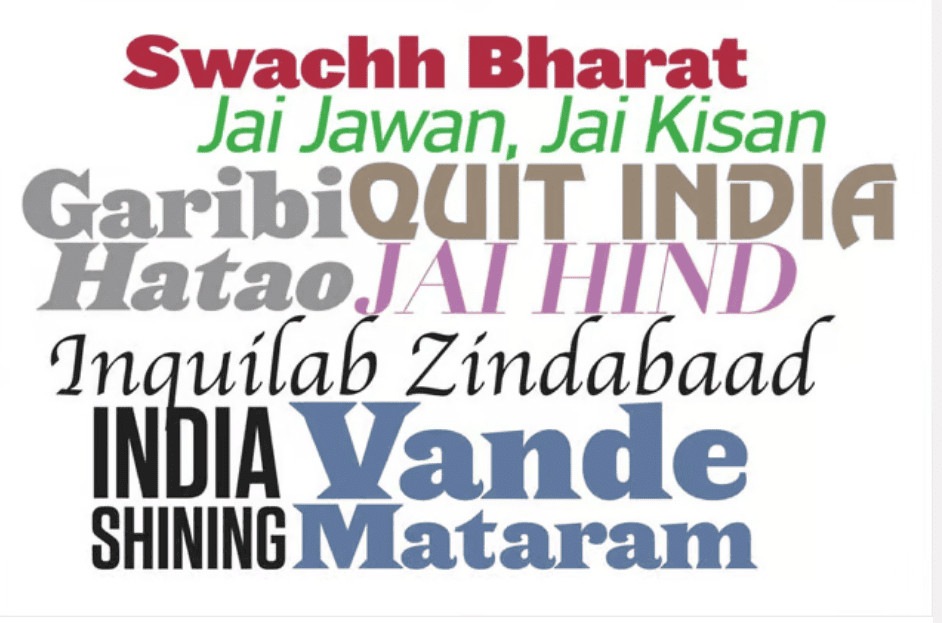
Rules for Election Campaigns
- In a democracy, political parties and candidates should be free to campaign in their own way.
- But to make sure everyone gets a fair chance, some rules and limits are needed.
What the Law Says -
According to Indian election law, no party or candidate is allowed to bribe or threaten voters, ask for votes using caste or religion and use government property or staff for campaigning.
Spend more than:
- ₹25 lakh for a Lok Sabha (Parliament) election (per constituency)
- ₹10 lakh for an Assembly election (per constituency)
If any candidate breaks these rules, the court can cancel their election, even if they have already won.
Model Code of Conduct
All political parties in India also follow a set of rules called the Model Code of Conduct during elections. According to this:
- They cannot use religious places (like temples, mosques, churches) for campaigning
- They cannot use government vehicles, planes, or officials for election work
- Once elections are announced, Ministers are not allowed to:
- Start any new projects
- Make big policy decisions
- Promise new public services or benefits
Polling and counting of votes
- On Election Day, every person whose name is on the voters' list can go to a nearby polling booth, usually situated in a local school or a government office.
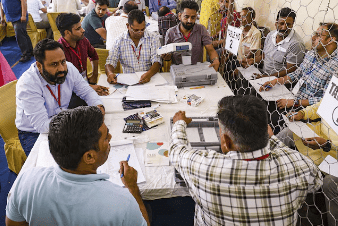
- Voter enters the booth, identified and marked by officials.
- Candidate agents ensure fair voting inside the booth.
- EVMs replace ballot papers for casting votes.
- EVMs display candidates' names and symbols for voting.
- EVMs are sealed and securely stored after polling.
- Vote counting happens on a fixed date with candidate agents present.
- The candidate with the highest votes wins the constituency.
- Results are announced soon after counting, revealing the next government.
Elections do cost money, but how much is “too much” is debatable: the 2014 Lok Sabha elections cost the government about ₹3,500 crore (≈₹40 per voter), while total spending including parties and candidates was roughly ₹30,000 crore (≈₹500 per voter). Critics call this a burden for a poor country, yet comparable national expenses include a single nuclear submarine at about ₹3,000 crore (2005) and the 2010 Commonwealth Games at around ₹20,000 crore. Seen against such figures, election costs may not be excessive—you decide.
What Makes Elections in India Democratic?
Unfair practices in elections are often reported, including:
- Voter List Issues: The inclusion of false names or the exclusion of genuine voters from the electoral rolls.
- Misuse of Government Resources: Ruling parties may misuse government facilities and officials to gain an advantage in elections.
- Excessive Use of Money: Wealthy candidates and large parties often use excessive amounts of money to influence voters.
- Intimidation and Rigging: Voters may be threatened, and there can be attempts to rig the voting process on election day.
While these practices are troubling, they usually do not occur at a scale large enough to undermine the overall purpose of elections
Independent Election Commission
- In India, elections are conducted by the Election Commission (EC).
- The EC is independent and has a lot of power, just like the judiciary (courts).
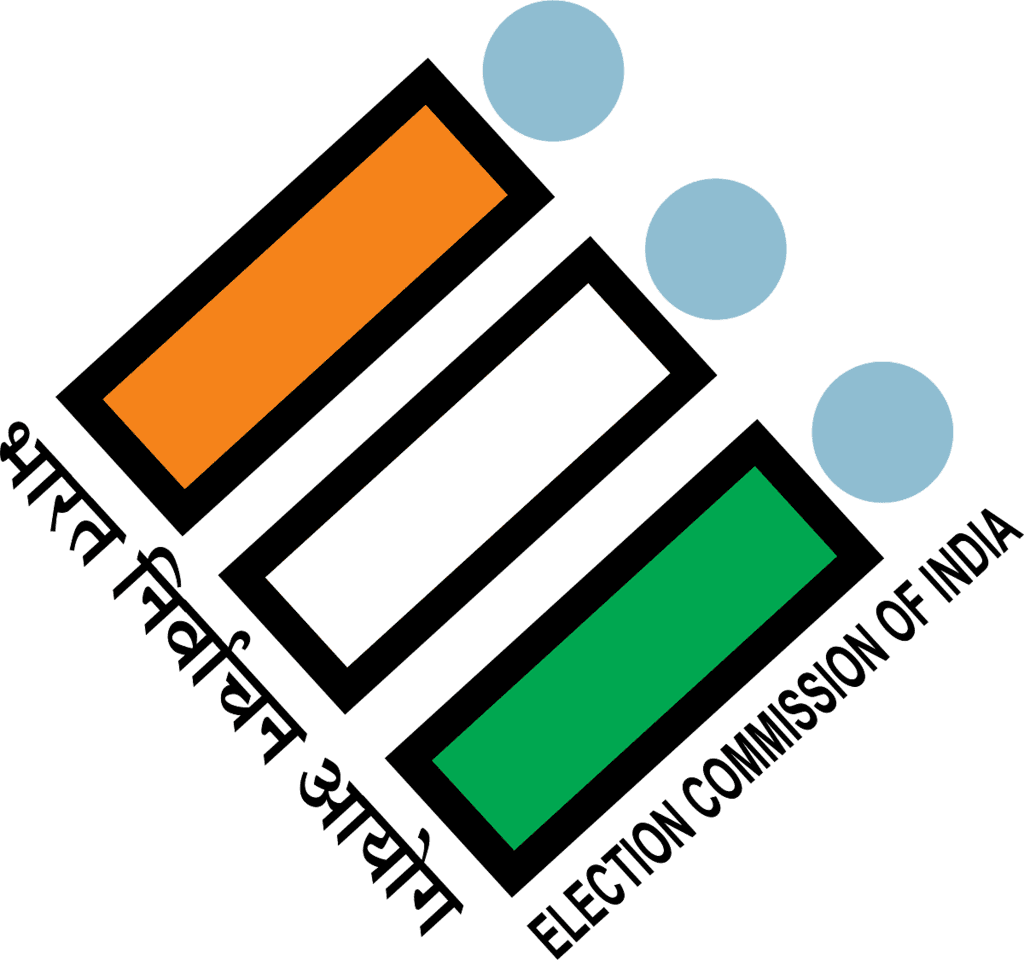
- The Chief Election Commissioner (CEC) is appointed by the President of India, but once appointed, no one can easily remove them—not even the government or ruling party.
- The EC controls everything about the elections—from announcing dates to declaring results.
- It enforces rules (like the Model Code of Conduct) and can punish candidates or parties who break them.
- The EC can ask the government to follow certain rules during elections to make sure there is no misuse of power.
- It can even transfer government officers if needed to keep elections fair.
- During elections, government officers work under the EC, not under the government.
- If the EC finds that voting was unfair in some areas, it can order a re-poll (voting again).
- Even if the ruling party is unhappy, they have to follow the EC's decisions.
- This shows how powerful and independent the EC is.
Popular Participation
One way to judge if elections are free and fair is to see how excited and active people are in taking part. If elections are not fair, people will lose interest and stop voting.
Let’s understand people’s participation in Indian elections:
1. What is Voter Turnout?
- Voter turnout means the percentage of eligible voters who actually go and vote.
- In the last 50 years, voter turnout in Europe and North America has gone down.
- But in India, voter turnout has stayed the same or increased.
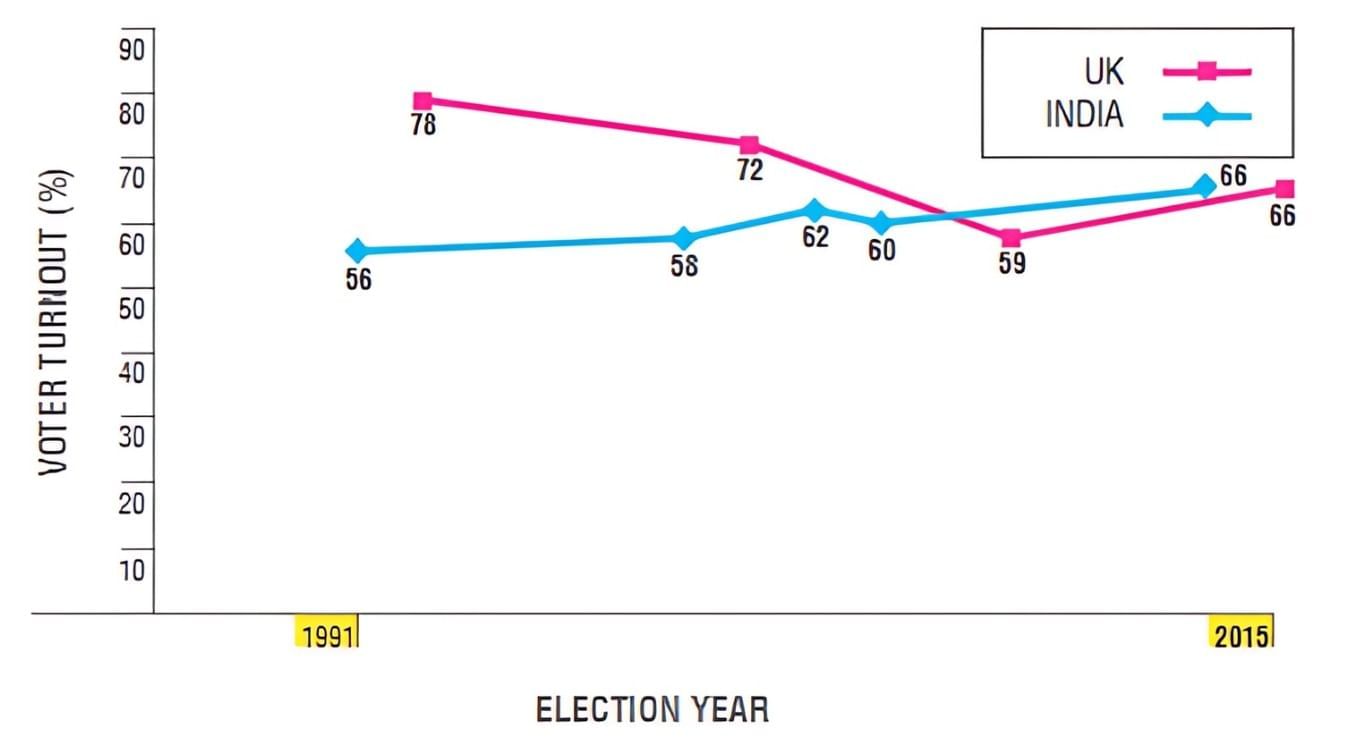 Voter Turnout in India and the UK
Voter Turnout in India and the UK
2. Who Votes More in India?
- In India, the poor, less educated, and underprivileged people vote more than the rich and educated.
- This is opposite to countries like the USA, where rich and white people vote more, and poor, African-Americans and Hispanics vote less.
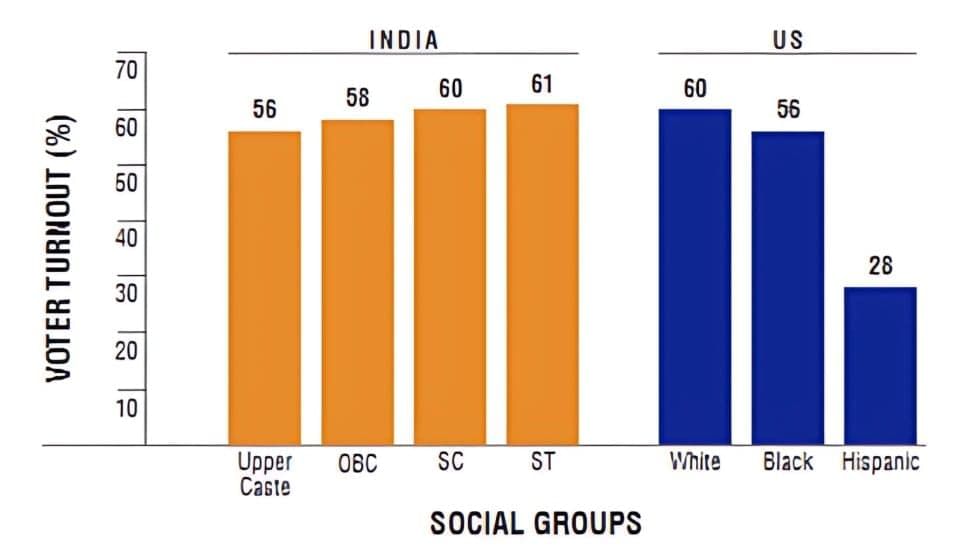 Voter Turnout in India and US by social groups, 2004
Voter Turnout in India and US by social groups, 2004
3. Why Do Common People Vote in India?
- People believe elections help them put pressure on political parties.
- They feel their vote can bring change and improve the way the country is run.
- Voting gives them a voice in the government.
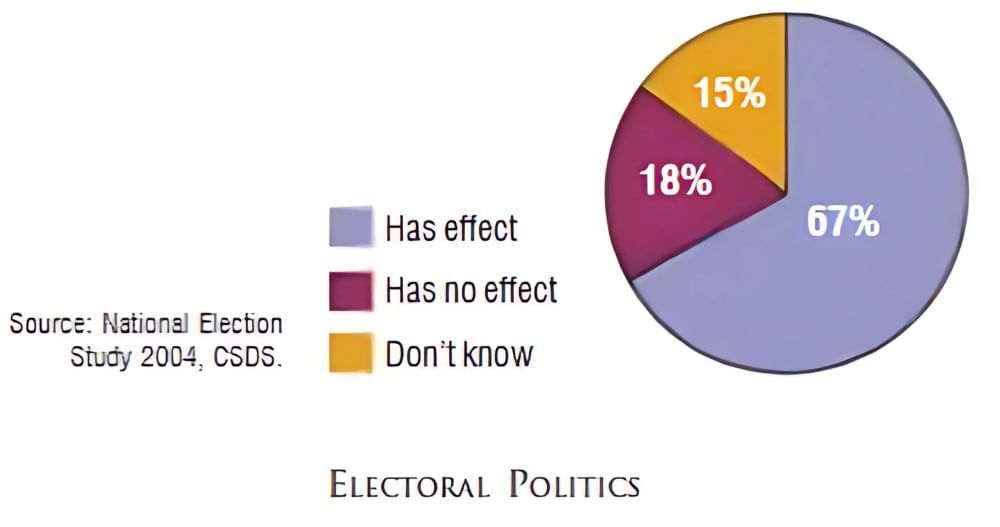 Do you think your vote makes a difference?
Do you think your vote makes a difference?
4. Growing Interest in Elections
- In the 2004 elections, over one-third of voters took part in campaign activities (like rallies, meetings, or discussions).
- More than half of the voters feel close to some political party.
- 1 out of every 7 voters is a member of a political party.
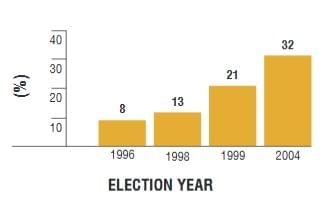 Those who participated in any election related activity in India
Those who participated in any election related activity in India
Acceptance of election outcome
If elections are not free and fair, the outcome always favours the powerful. In such a situation, the ruling parties do not lose elections. The outcome of India’s elections speaks for itself:
- The ruling parties routinely lose elections in India, both at the national and state levels. In fact, in two out of the three elections held in the last fifteen years, the ruling party lost.
- In the US, an incumbent or ‘sitting’ elected representative rarely loses an election. In India, about half of the sitting MPs or MLAs lose elections.
- Candidates who are known to have spent a lot of money on ‘buying votes’ and those with known criminal connections often lose elections.
- Barring a few disputed elections, the electoral outcomes are usually accepted as ‘people’s verdict’ by the defeated party.
Challenges to free and fair elections
In general, elections in India are mostly free and fair. The party that wins usually does so because the people have chosen it over other parties.
Yes, there may be a few places where candidates win using money or unfair means, but overall, the results of elections show what most people want. This is why Indian elections are considered democratic.
Even though elections seem fair, there are serious challenges:
1. Lack of Informed Choices
Many voters do not have full knowledge about candidates or party policies.
2. Unfair Advantage of Money and Power
- Rich parties and candidates spend large amounts on campaigns.
- They get more attention, making it hard for smaller parties to compete.
3. Criminal Backgrounds
In some areas, criminals manage to get party tickets and scare others away.
4. Family Dominance
- Some political parties are controlled by one family.
- Tickets are often given to relatives, not based on merit.
5. Limited Choice for Voters
- Sometimes, both major parties have similar ideas and actions.
- Voters feel they have no real alternative.
These problems are not unique to India; even developed democracies face them.
This is why citizens, NGOs, and activists are calling for electoral reforms.
What Can Be Done?
- Reforms are needed to make elections more fair and inclusive.
- Ordinary citizens can stay informed, vote responsibly, and raise their voices for better laws and systems.
Key Terms
- Electoral Constituencies: Specific geographic areas defined for the purpose of elections, from which representatives are elected to legislative bodies. Each constituency elects one representative.
- Reserved Constituencies: Constituencies where seats are reserved for candidates belonging to Scheduled Castes (SC) and Scheduled Tribes (ST) to ensure political representation for these historically marginalized communities.
- Electoral Roll (Voters' List): The official list of eligible voters who can participate in an election. This list is crucial for the organization and fairness of electoral processes.
- Election Campaign: The period leading up to the election when candidates and parties promote their policies and criticize their opponents to win voter support.
- Model Code of Conduct: A set of guidelines issued by the Election Commission to regulate the behavior of parties and candidates during an election. It ensures that the election campaign is conducted in a fair and respectful manner.
- Electronic Voting Machines (EVMs): Devices used in elections to record votes. Voters press buttons corresponding to their chosen candidates. EVMs are designed to increase the efficiency and reliability of the electoral process.
- By-Election: An election held in a single constituency to fill a vacancy that arises due to death or resignation of a member, outside the regular election cycle.
- General Election: Regularly scheduled elections where representatives are chosen in all electoral constituencies, typically held at fixed intervals, as stipulated by law or the constitution.
- Independent Election Commission: A neutral body established by the constitution or legislative act to oversee the conduct of elections and ensure they are free and fair.
- Universal Adult Franchise: The right of all adult citizens to vote without discrimination on the basis of race, sex, belief, wealth, or social status.
|
55 videos|637 docs|79 tests
|
FAQs on Class 9 Civics Chapter 3 Notes - Electoral Politics
| 1. Why are elections considered essential in a democratic society? |  |
| 2. What characteristics make an election democratic? |  |
| 3. How does political competition benefit a democratic system? |  |
| 4. What are the main concerns that the Constitution makers had regarding elections? |  |
| 5. How do voting patterns in India differ from those in the United States? |  |

